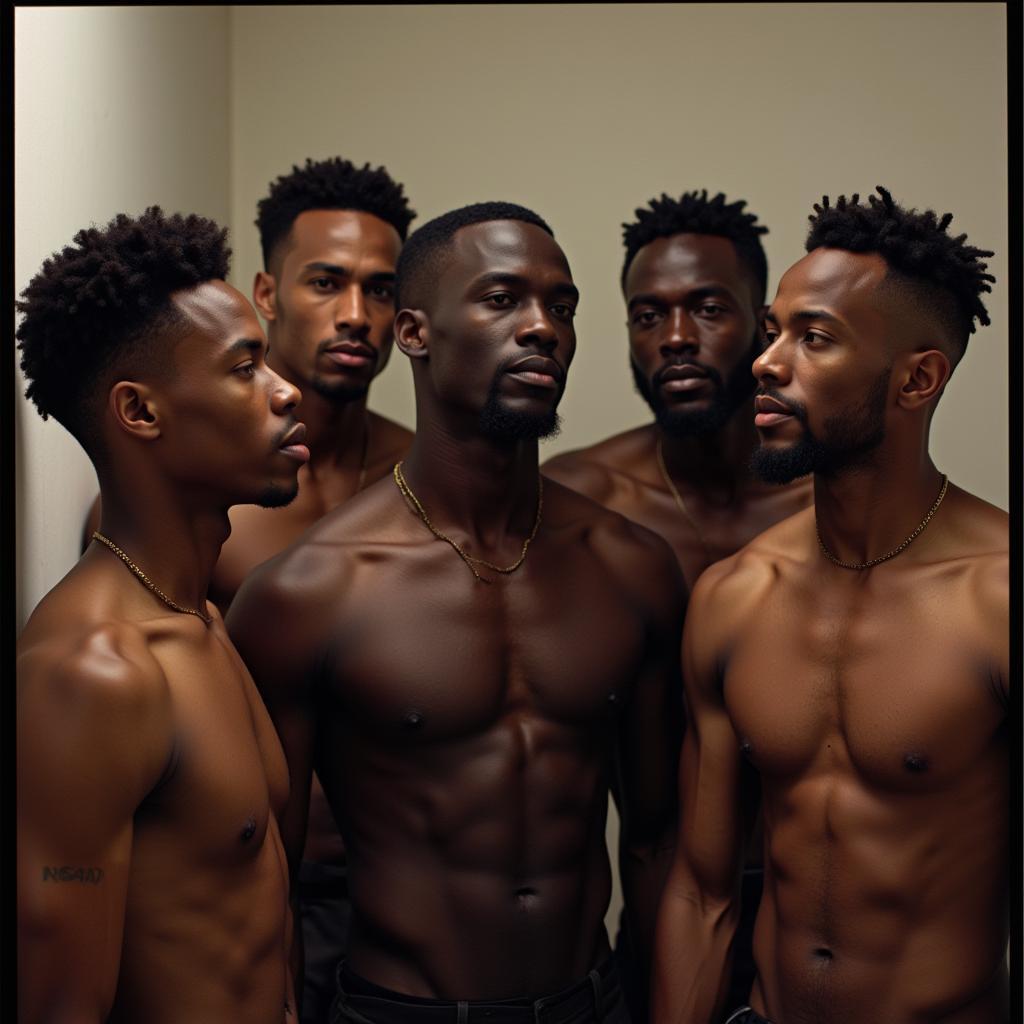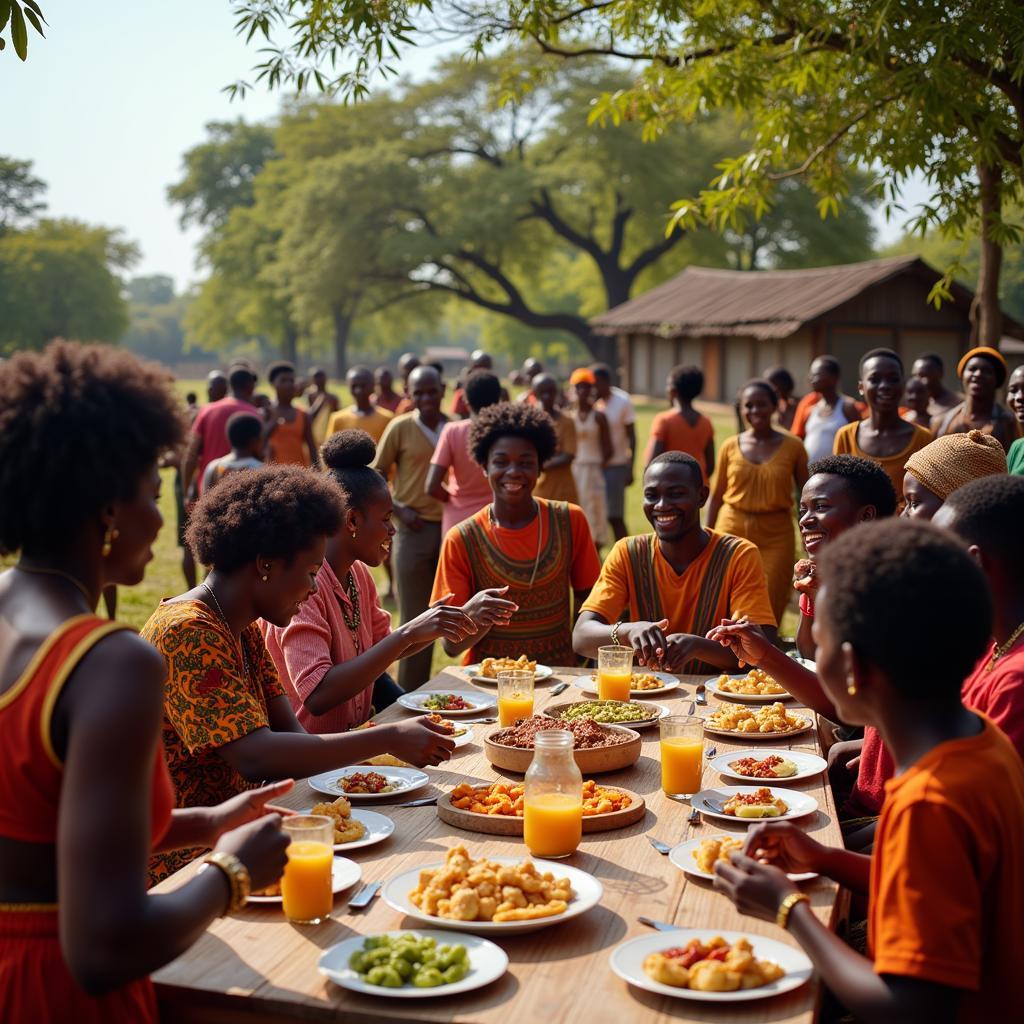Unmasking the Power of the African Fertility Statue
African Fertility Statues are powerful symbols deeply rooted in the rich cultural tapestry of the African continent. These sculptures, often crafted from wood, stone, or metal, represent far more than just the desire for children; they embody hope, continuity, and the profound connection between humanity and the natural world. Let’s delve into the captivating world of these significant artifacts.
Exploring the Significance of African Fertility Statues
These statues are not mere decorative objects; they are imbued with spiritual significance and play a vital role in various rituals and ceremonies across different African communities. They serve as a tangible link to ancestral spirits, believed to hold the power to bestow blessings of fertility and abundance. This belief underscores the reverence for life and the importance of lineage within African cultures. You can find related articles on African spirituality, including prayers for fertility, at african fertility prayer.
The Varied Forms and Symbolism of Fertility Sculptures
African fertility statues exhibit a remarkable diversity in form and style, reflecting the unique artistic traditions of various ethnic groups. Some depict pregnant women with exaggerated breasts and bellies, symbolizing abundance and nourishment. Others portray idealized female figures adorned with intricate patterns and scarification marks, representing beauty and social status. Even the materials used hold symbolic meaning, with wood representing the connection to nature and stone representing strength and permanence.
The Role of Rituals and Ceremonies
Fertility statues are often central to rituals and ceremonies aimed at ensuring successful conception and childbirth. These rituals can involve offerings, prayers, and dances, all performed in the presence of the statue, which acts as a conduit between the living and the spiritual world. The statues are often treated with great reverence and are sometimes passed down through generations, becoming powerful family heirlooms.
African Fertility Statues: Beyond Procreation
It’s important to understand that the symbolism of these statues extends beyond the purely biological aspects of fertility. They encompass the broader concept of societal continuity, encompassing agricultural fertility, prosperity, and the overall well-being of the community. This holistic perspective reflects the interconnectedness of life in African cosmology.
Regional Variations in Artistic Style
The specific styles of African fertility statues vary significantly across different regions of the continent. For example, the Baule people of Côte d’Ivoire are known for their elegant, elongated figures, while the Yoruba of Nigeria create statues with distinctive facial features and elaborate headdresses. This regional diversity adds to the richness and complexity of African art. If you are interested in learning more about other powerful statues in African culture, check out this resource on 7 african powers statue.
The Impact of Colonization and Modernity
The colonial era had a profound impact on African art, including fertility statues. While some traditional practices continued, others were suppressed or modified. Today, African artists continue to draw inspiration from these ancient forms, creating contemporary interpretations that reflect both the enduring power of tradition and the evolving realities of modern Africa.
Collecting and Appreciating African Fertility Statues
For those interested in collecting African art, fertility statues offer a unique opportunity to connect with a rich cultural heritage. It’s crucial, however, to ensure ethical sourcing and to support artists and communities directly whenever possible. Learning about the history and significance of these pieces adds depth to their appreciation. You might find resources focusing on African body image and beauty standards relevant to understanding the aesthetic context of these statues, such as african big boobs ladies.
Preserving Cultural Heritage
The preservation of African cultural heritage is of paramount importance. Museums and cultural institutions play a vital role in safeguarding these artifacts for future generations. Supporting these efforts helps ensure that the stories and traditions embodied in these powerful sculptures continue to inspire and enlighten.
In conclusion, African fertility statues are more than just objects; they are embodiments of cultural values, spiritual beliefs, and artistic expression. They offer a fascinating window into the diverse and complex world of African art and culture. Exploring the symbolism and significance of these powerful artifacts helps us appreciate the rich heritage of the African continent. When searching for these statues, it’s essential to be mindful and respectful of the cultural context. Consider researching diverse African art forms and traditional practices to further deepen your understanding.
FAQ: African Fertility Statues
- What are African fertility statues made of? They are typically carved from wood, stone, or sometimes metal.
- What do African fertility statues symbolize? They symbolize fertility, abundance, continuity, and the connection to ancestral spirits.
- Are these statues still used in rituals today? Yes, in some communities, these statues continue to play a role in traditional rituals and ceremonies.
- Where can I learn more about African art and culture? Museums, cultural centers, and reputable online resources are excellent places to start.
- How can I ensure I’m purchasing ethically sourced African art? Research reputable dealers and galleries that prioritize ethical sourcing and support local communities.
- What are some other examples of symbolic African sculptures? Ancestor figures, masks, and power figures are other important examples.
- What is the cultural significance of exaggerated features in some fertility statues? Exaggerated features often symbolize abundance, health, and the life-giving power of women.
For further information on related topics, you may find these resources helpful: african ladies boobs nude pics and african fat sexy girls.
If you need further assistance, please contact us: Phone: +255768904061, Email: kaka.mag@gmail.com Or visit us at: Mbarali DC Mawindi, Kangaga, Tanzania. We have a 24/7 customer service team.

